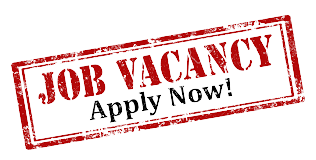JOB OPPORTUNITIES AT BIOMEDICAL EQUIPMENT RESOURCE CENTRE (BERC) AND ITS ALLIED WORKSHOPS
Here is Vacant Positions:
Age Limit: 35 - 50 Years
Age Limit: 30 - 50 Years
Age Limit: 30 - 50 Years
Age Limit: 30 - 50 Years
Age Limit: 25 - 35 Years
Age Limit: 25 - 35 Years
Age Limit: 25 - 35 Years
Age Limit: 25 - 35 Years
Age Limit: 25 - 35 Years
Age Limit: 25 - 35 Years
Age Limit: 25 - 35 Years
Age Limit: 25 - 35 Years
Age Limit: 25 - 35 Years
Age Limit: 25 - 40 Years
Age Limit: 25 - 35 Years
Age Limit: 25 - 35 Years
Age Limit: 25 - 35 Years
Biomedical job responsibilities can vary widely depending on the specific role and organization, but they generally involve tasks related to the intersection of biology and medicine. Biomedical professionals work to improve healthcare, conduct research, develop medical devices, and ensure the safety and efficacy of healthcare products. Here are some common responsibilities associated with various biomedical job roles:
Biomedical Research Scientist:
- Conduct experiments to investigate biological and medical phenomena.
- Analyze data and draw conclusions from research findings.
- Collaborate with other researchers and teams on projects.
- Publish research findings in scientific journals.
- Seek funding through grant applications.
Clinical Research Coordinator:
- Manage and coordinate clinical trials and studies.
- Ensure adherence to protocols and regulatory requirements.
- Recruit and screen study participants.
- Collect and manage data from clinical trials.
- Maintain accurate and complete documentation.
Biomedical Engineer:
- Design and develop medical devices and equipment.
- Test and evaluate the performance of medical devices.
- Collaborate with healthcare professionals to identify needs.
- Ensure compliance with safety and regulatory standards.
- Troubleshoot and resolve technical issues with medical devices.
Biomedical Technician:
- Install, maintain, and repair medical equipment.
- Perform preventive maintenance on healthcare devices.
- Calibrate and troubleshoot medical instruments.
- Train healthcare staff on the proper use of equipment.
- Document maintenance and repair activities.
Regulatory Affairs Specialist:
- Prepare and submit regulatory documents to government agencies.
- Ensure compliance with laws and regulations in the healthcare industry.
- Stay updated on changes in regulations and standards.
- Coordinate with internal teams to meet regulatory requirements.
- Assist in obtaining approvals for new medical products.
Biomedical Sales and Marketing:
- Promote and sell biomedical products and services to healthcare facilities.
- Develop marketing strategies and campaigns.
- Provide product training to customers and healthcare professionals.
- Analyze market trends and customer feedback.
- Build and maintain client relationships.
Quality Control/Quality Assurance Specialist:
- Establish and enforce quality control standards.
- Monitor and evaluate the production process of biomedical products.
- Conduct inspections and audits to ensure compliance with quality standards.
- Investigate and address product defects or deviations.
- Develop and implement quality improvement initiatives.
Biomedical Educator:
- Teach biomedical science or engineering courses.
- Develop curriculum and educational materials.
- Mentor and advise students in research projects.
- Stay current with advancements in the field.
Healthcare Administrator in Biomedical Settings:
- Oversee the management and operation of biomedical departments.
- Budgeting and resource allocation.
- Ensure compliance with healthcare regulations.
- Coordinate staff schedules and activities.
These responsibilities provide a broad overview of the roles within the biomedical field, but keep in mind that specific job duties can vary greatly depending on the organization and the focus of the position. Biomedical professionals may work in hospitals, research institutions, pharmaceutical companies, medical device manufacturers, regulatory agencies, or academic institutions.

.jpg)





.jpg)

No comments:
Post a Comment